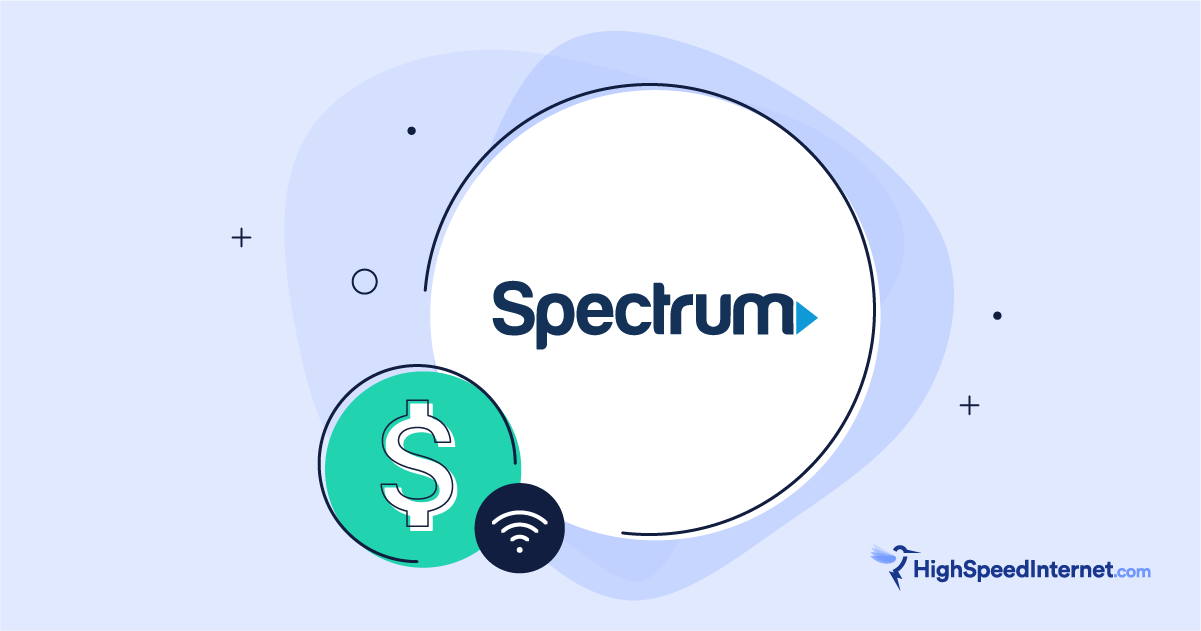2023 Survey Insights: Why You’re Choosing the Wrong Internet
Our annual survey results are in, and you may be shocked at what American consumers found most important about their Internet!
Oct 3, 2023 | Share
Brand Guides

Every year, we survey thousands of people about home internet service: What they like, what they don’t like, and what they want. This year’s data shows a shift in what makes people happy. Customers are less impressed with specs and features. As it turns out, the best internet services behave like utilities, operating in the background to keep you connected without any micromanagement. The top performing internet service in 2023 isn’t the fastest or cheapest (though its pricing is very competitive), but it is the easiest to use and maintain.
However, while our preferences have changed, the way we shop for internet service hasn’t. We get distracted looking for the fastest speeds and the lowest sticker price. Our data shows this doesn’t lead to better internet service—it might not even lead to a cheaper plan. When it comes to shopping for the best provider and plan, the majority of customers are doing it wrong.
Thankfully, our survey revealed that a relatively new type of internet service and one ISP, in particular, are not only providing service that fits the needs of the modern internet customer but also eliminating many pain points that go back to the beginning of consumer broadband service. But before we dive into specifics, let’s talk about choosing an internet service and what you can do to get the best deal for your household.
Chasing the lowest price
We asked people what mattered most to them when choosing an internet provider: Price, speed, reliability, internet type, or customer service. Price was by far the most popular choice. But when we zoomed into this large group of price-centric customers, we found they were the least satisfied with their internet service. Price-prioritizing people gave the lowest ratings in almost every category, including price satisfaction.
At the very least, we expected to see this group paying the cheapest prices, and they were, but not by much. The majority of this group reporting the same general price ranges as the rest of the survey pool.

Data sourced from 2023 HSI Customer Satisfaction Survey 9/8/2023.
We also asked customers how much of a price hike they would tolerate before switching internet providers, and unsurprisingly, these price chasers had the lowest tolerance for price hikes, with nearly a quarter (24%) saying they wouldn’t tolerate their plan going up a cent more in price. The majority said they would jump ship at any price hike above 10% of their monthly internet bill. But here’s the kicker: Price chasers reported experiencing the most price hikes. This explains why, when asked, this group was also the least willing to stick with their internet plan once their contract was up.

Data sourced from 2023 HSI Customer Satisfaction Survey 9/8/2023.
So how does the group most focused on getting the best deal end up with subpar service and little to no savings? It’s the price hikes and hidden fees.
The most common internet plan price hikes are those you experience at the end of a promotional period. You often don’t realize it, but you agree to these price hikes when you sign up for the plan. And the competitive introductory rates that attract price chasers are often only achieved by baking price hikes into the contract and hiding fees until you’re about to check out or, even worse, when you get your first bill. Once the promo period ends, you get stuck with the fees, the price hike, and a service you wouldn’t have chosen otherwise.
All this suggests that prioritizing a low introductory price above all else leads to small, temporary gains that are quickly outweighed by negatives. It’s important to pick something within your budget, but you also don’t want to sacrifice all the other important factors of your service for a low introductory rate: Not only can that lead to a poor experience, but you might not even get a better deal in the long run.
2023’s happiest customers
When we grouped customers based on what mattered most to them, we noticed that most weren’t getting what they wanted. The people who cared most about speed weren’t any happier with their speeds than the people who cared more about reliability or their type of service. And the people who put reliability above all else didn’t give higher reliability ratings than the group that prioritized speed. This trend showed up in all groups except for one: Those who chose customer service as the most important factor when choosing an internet provider. This group got exactly what they were looking for and more. Customers who prioritized customer service gave the highest customer service ratings, the highest speed ratings, the highest reliability ratings, and the highest price ratings. In fact, with a 4.0 average overall satisfaction rating, this group is among the happiest in any analyzed in the survey.

Data sourced from 2023 HSI Customer Satisfaction Survey 9/8/2023.
The problem is almost nobody prioritizes customer service when choosing their ISP. Again, price was the most important factor for most people, followed by speed, reliability, and then internet type. Only 5% of those surveyed prioritize customer service. If you want the best experience as an internet customer, our data says you should join them.

Data sourced from 2023 HSI Customer Satisfaction Survey 9/8/2023.
But what did these customers mean when they said customer service matters most? Does that mean an ISP with good reps, an awesome app, and short call waiting times? The data says no.
Of the highly satisfied customer service-obsessed group, 41% reported never even contacting their ISP for help with an issue. In fact, when we look at all the top-performing ISPs in the survey, the fewer customers who reported contacting customer service, the better the ISP’s ratings were all around. And when we look at the survey as a whole, the majority (54%) of the most satisfied customers said they’d never contacted customer service. The least satisfied customers said the opposite, with the vast majority (89%) reporting they have had to call in to fix issues. The numbers are clear: The more time people use managing their internet service, the less satisfied they are.

Data sourced from 2023 HSI Customer Satisfaction Survey 9/8/2023.
Good customer service doesn’t start when someone has a problem, it starts with the product’s design. People aren’t looking for a memorable experience with a phone representative or the best tools to troubleshoot their internet issues. They’re looking for an internet service provider that handles these issues for them with a well-designed internet plan that runs itself—the same kind of service people expect of their electricity or water. But who’s offering that experience in 2023? It’s time to talk about 5G fixed wireless and T-Mobile.
Best internet service type of 2023
Of all the major internet service types, fixed wireless received the best ratings in the survey. Not only did fixed wireless customers give the highest overall satisfaction ratings, but they were also the happiest with their pricing and customer service. Fiber customers gave higher speed and reliability ratings, but fixed wireless was very close behind. And survey responses suggest speed and reliability are two of the worst metrics you can use to compare providers in 2023.
While we’ve been using fixed wireless on our cell phones for years now, the technology’s use as a primary home internet connection is relatively new. Fixed wireless customers get home internet service from nearby cell towers, which provide the benefits we think resonated so well with customers in the survey.
Because fixed wireless is completely wireless, there’s no extensive installation process and not much you have to maintain to keep it running. Setup is as simple as plugging in the router and setting up your Wi-Fi through an app. And unlike self-installs for other internet types, it works every time. There are no cables, no technician appointment or installation fee, and tasks like moving your router to another location are a breeze. The only consideration when using fixed wireless home internet is maintaining good 5G reception, which is usually as simple as placing the router near a window. Nothing before has had fixed wireless’s plug-n-play setup or its extremely light maintenance needs.
Best internet plan of 2023
Fixed wireless didn’t just succeed as the best tech type, but the top-performing ISP in this year’s survey runs 100% of its customers on a fixed wireless network. T-Mobile 5G Home Internet scored the highest in the same three categories (overall satisfaction, price, and customer service) that fixed wireless won as a tech type. Just as fixed wireless solves some major convenience issues that internet customers have been dealing with for decades, T-Mobile coupled the opportunity to break into the ISP market afforded by fixed wireless with some customer-centric policies that knock down even more walls standing between customers and the ideal internet service.
First off, T-Mobile customers are given a flat $60 monthly rate that includes everything. At no point in the checkout process do you run into extra fees or add-ons. Next, T-Mobile home internet customers get unlimited data, so they don’t need to count gigabytes throughout the month or track their data usage in an app. Finally, all T-Mobile Home Internet customers are presented with the same internet plan with the same speeds and features. There’s no research involved and or differences to consider because there’s only one option.
Now, we think of more choices as a good thing. Why not tailor your internet to your exact needs? But T-Mobile’s rapid and complete success shows that customers don’t mind not being burdened with the extra step of choosing a particular plan, provided the one option gets the job done. It also supports the idea that most internet customers have similar needs that can easily be met or surpassed with a single, no-nonsense internet plan.
Don’t fall for the speed trap
Of all the ISPs included in our 2023 Customer Satisfaction Survey Report, T-Mobile customers were the happiest. But T-Mobile also stuck out in another way: Of all the ISPs in the report, T-Mobile offered the slowest max speed. Customers didn’t seem to notice or care.
On the contrary, 91% of T-Mobile customers said their internet speeds meet their needs, the second highest percentage for that question in the survey. And our T-Mobile customer set contained a good representation of the broad American public; including people from all types of dwellings, family sizes, income levels, regions, and internet usage profiles. This suggests it’s not an anomaly or biased data set, but rather, indicative of what works for the average American household.
At HighSpeedInternet.com, we’ve analyzed internet speeds every which way: Speed test data, surveys, plan comparisons, and more. The numbers always say the same thing: Most people don’t need that much internet speed, and there’s no benefit to purchasing more internet speed than you need. T-Mobile’s success over ISPs with max speeds literally 20 times faster is just more support for this simple truth.
T-Mobile’s advertised max speed is 245Mbps, which doesn’t seem like much when everyone else is flaunting gigabit speeds, but it’s more than enough for the vast majority. When it comes to internet speed, having enough is all that matters.
Why specs don’t matter as much in 2023
We used to have to keep a close eye on plan speeds and the latest internet technology to keep our home internet running smoothly. But we seem to have reached a plateau in speeds and reliability in 2023. While ISPs are offering faster and faster speeds every year, most of us don’t need these overwhelmingly fast (and expensive) gig connections. And when it comes to reliability, with very few exceptions, all the modern internet tech types have become consistently reliable. In fact, it’s getting harder and harder to tell which is the most reliable because the differences are so small.
If all your options are adequately fast and reliable, what’s left to make one service better than the other? It’s the pricing and experience. This is why straightforward pricing (rather temporarily low rates), ease of use, and thoughtful customer experiences are winning out over speed figures and flashy features. Unless our bandwidth needs quadruple or internet infrastructure takes a serious dive, we expect these trends to only get stronger going forward.
2023 survey takeaways
- Convenience, simple terms, and thoughtful customer experiences are winning over flashy speeds and new features.
- A laser focus on the lowest introductory rate leads to unhappy customers.
- fixed wireless is off to a great start.
- T-Mobile’s 5G Home Internet is the best internet plan of 2023.
Author - Austin Aguirre
Austin worked as a broadband technician installing and troubleshooting countless home internet networks for some of the largest ISPs in the U.S. He became a freelance writer in 2020 specializing in software guides. After graduating with a BS in technical communication from Arizona State University, he joined the team at HighSpeedInternet.com where he focuses on home network improvement and troubleshooting.




